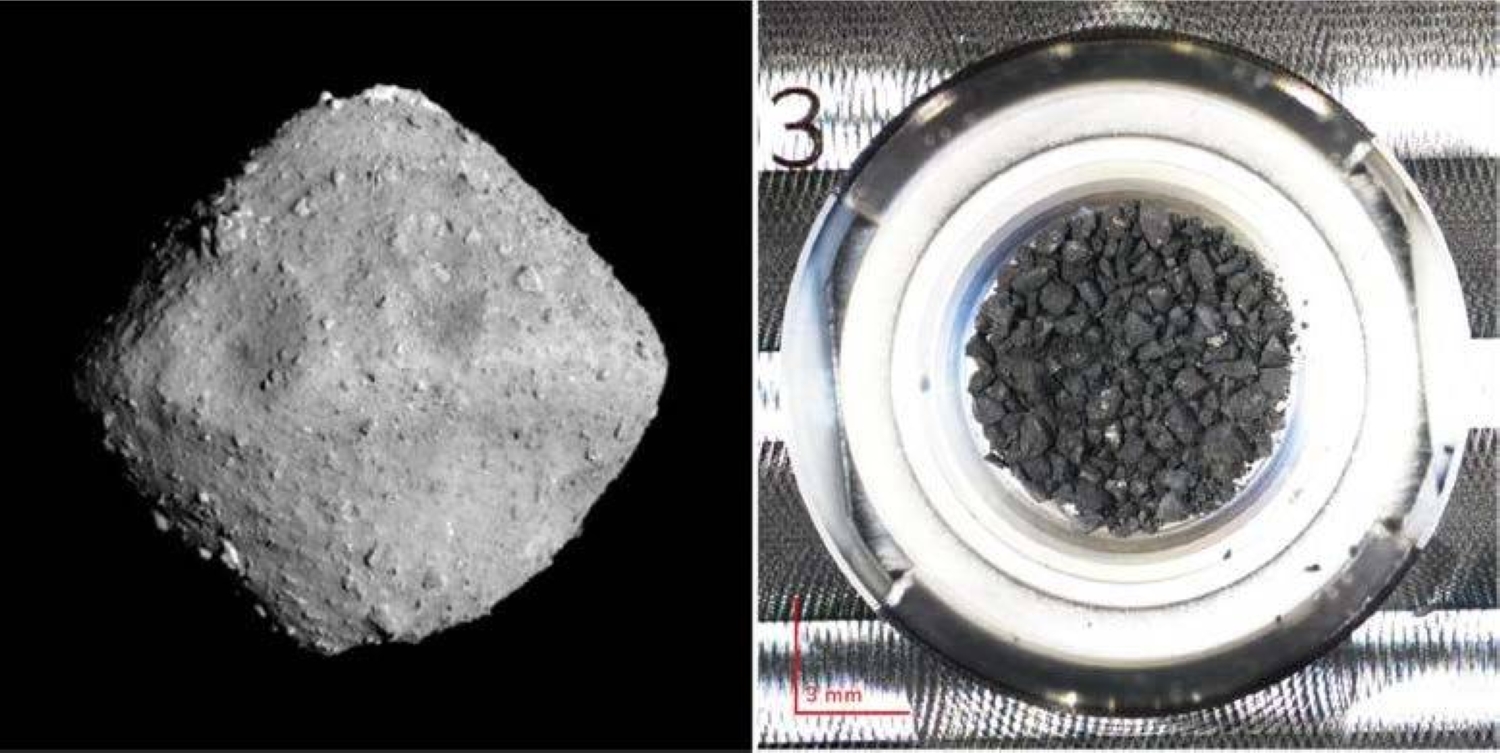The parent body of near-Earth asteroid Ryugu appears to have harbored water in the form of ice for more than a billion years, Japanese researchers have found, in a discovery that could reshape current theories on how the Earth got its oceans.
Analyzing samples from Ryugu collected by the Japan Aerospace Exploration Agency’s Hayabusa2 spacecraft, a research team led by Tsuyoshi Iizuka, associate professor on cosmochemistry at the University of Tokyo, found evidence that its parent body had stored water as ice far longer than scientists thought possible.
The findings, published Thursday in the scientific journal Nature, suggest asteroids delivered water to Earth not only as hydrous minerals — in which water molecules or hydroxyl groups, containing oxygen and hydrogen, are chemically incorporated into the mineral’s crystalline structure — but also as ice.
